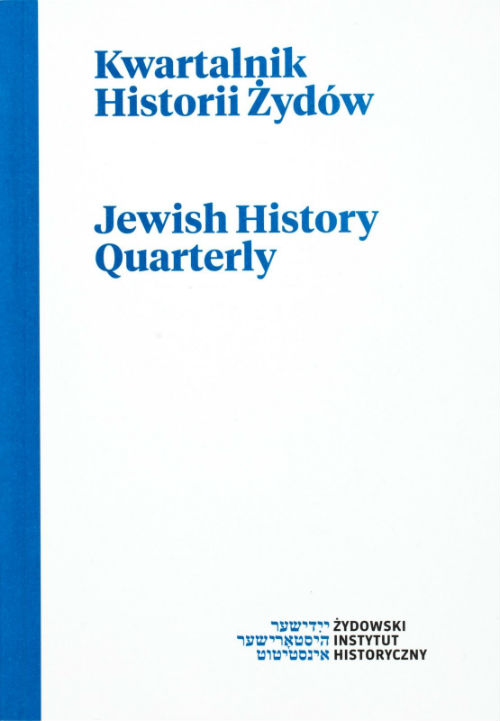Położenie warszawskich Żydów po wkroczeniu wojsk rosyjskich na ziemie Rzeczypospolitej w 1792 roku
The Situation of Warsaw’s Jews after Russian Armed Incursion into Poland’s Territory in 1792
Author(s): Zofia BorzymińskaSubject(s): History
Published by: Żydowski Instytut Historyczny
Keywords: Jewish reform; Warsaw burghers; Grodno Sejm; Stanisław August Poniatowski
Summary/Abstract: Warsaw had the de non tolerandis Iudaeis privilege, meaning that Jews could only reside and engage in professional activities in Warsaw while the Sejm (parliament) was in session. The changes taking place in Europe in the last 18th century were giving rise to hopes for the legalization of their presence, all the more so as the Four-Year Sejm (1788-1792), which was preparing the fundamental reforms of the state, also looked into the “reform of the Jews”. The top politicians were engaged in the matter, and so was King Stanislaus Augustus Poniatowski, for whom the cash „donations” promised by the Jews were quite important as he had amassed hefty debts. However, Warsaw burghers were opposed to any changes of the situation of the Jews and defended the town’s old privileges. When in February 1792 the Sejm went into recess, they had the Jews driven out from the capital. In May 1792, Russia’s intervention forces crossed into Poland. The question of the planned „reform of the Jews” dropped from the parliamentary agenda, and also the question of their right to stay in Warsaw remained unresolved. In the autumn of that year, the Marshal issued a decision on the unconditional necessity of the Jews leaving Warsaw. Warsaw Jews were pinning hopes for the legalization of their presence in the city with the debates of the parliament in Grodno, which began in June 1793. Both the Jews and the Warsaw burghers, who wanted to oust the Jews from the city once and for all, engages in costly informal maneuvering aimed at securing the support of the deputies and other prominent persons for their demands. The Sejm’s decision of 23 November 1793 did not solve the problem of permanent residence of Jews in Warsaw but as a result of the abolition of jurydykas, deprived them of the protection of wealthy patrons. Even so, a kehilla continued to operate informally in Warsaw, as did the Holy Brotherhood (Khevra Kadisha).
Journal: Kwartalnik Historii Żydów
- Issue Year: 235/2010
- Issue No: 03
- Page Range: 263-282
- Page Count: 20
- Language: Polish
- Content File-PDF

